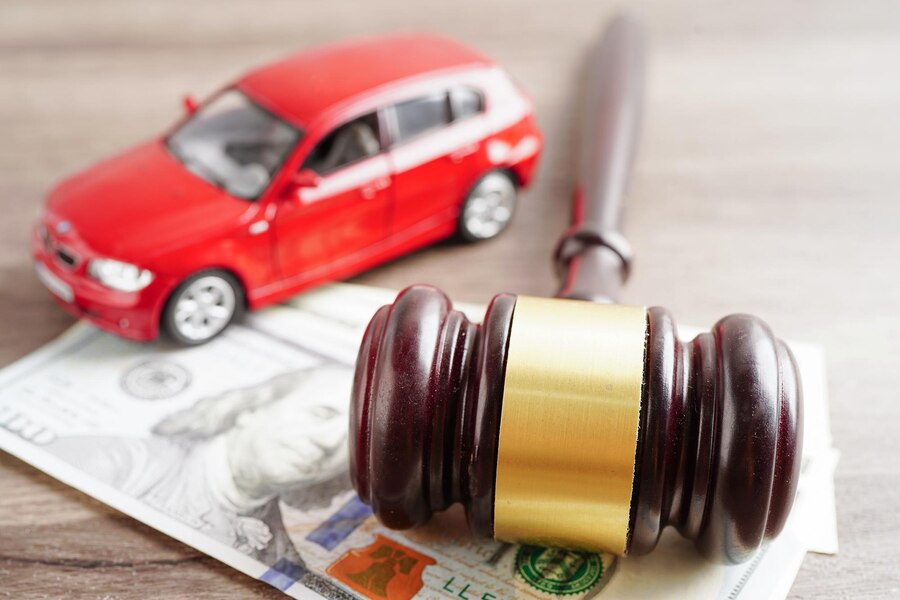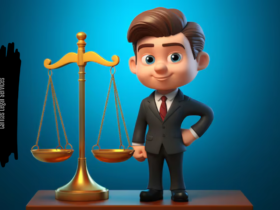Introduction to Car Crash Lawsuits
A car crash lawsuit is a legal action taken after someone is involved in a car accident. The lawsuit seeks to recover compensation for injuries, damages, or losses caused by the crash. These lawsuits are important in the legal world because they help victims get financial help when they suffer from an accident that was not their fault.
People file car crash lawsuits for different reasons. Some may have large medical bills because of injuries from the accident. Others might have lost income because they could not work after the crash. Repairing or replacing a damaged vehicle is also a common reason. Additionally, the pain and suffering caused by the accident can lead to a lawsuit. If the accident results in death, the victim’s family might file a lawsuit to get compensation for their loss.
When Should You Consider Filing a Car Crash Lawsuit?
Filing a car crash lawsuit is appropriate in several situations. If you have suffered serious injuries from a car accident, a lawsuit might be necessary to get the compensation you need. This is especially true if your medical bills are high or if the injuries have affected your ability to work.
Another common reason to file a car crash lawsuit is when there are disputes over fault. If the other party or their insurance company refuses to accept responsibility for the accident, a lawsuit can help establish who is at fault and ensure you get the compensation you deserve.
Inadequate insurance settlements are also a reason to consider filing a lawsuit. If the insurance company offers you a settlement that does not fully cover your medical expenses, lost wages, or vehicle damage, a lawsuit can help you recover the full amount.
It is also important to consider the statute of limitations. This is the time limit you have to file a lawsuit after a car accident. The time limit varies by state, but it is usually between one and three years. If you wait too long to file your lawsuit, you may lose your right to seek compensation. This is why timing is crucial; you should act quickly to ensure your lawsuit is filed within the legal time frame.
Steps to Take After a Car Crash
Gathering Evidence
After a car crash, it is crucial to gather as much evidence as possible. This includes police reports, which provide an official record of the accident and can help establish fault. Medical records are also important because they document the injuries you sustained and the treatment you received. This information is vital when seeking compensation for medical expenses. Additionally, collecting witness statements can strengthen your case. Witnesses can provide an unbiased account of what happened, which can be useful if there are disputes over the details of the accident.
Consulting with a Lawyer
It is also important to consult with a lawyer after a car crash, especially if you are considering filing a lawsuit. An experienced car accident attorney can guide you through the legal process, help you understand your rights, and ensure you take the right steps to build a strong case. The attorney can also negotiate with insurance companies on your behalf and represent you in court if necessary. By working with a lawyer, you increase your chances of getting the compensation you deserve.
The Legal Process of a Car Crash Lawsuit
Filing the Complaint
The first step in a car crash lawsuit is filing a complaint. This is a legal document that outlines your claims, including the details of the accident, the damages you are seeking, and why you believe the other party is at fault. The complaint officially starts the lawsuit and is served to the defendant (the person you are suing). The timeline for filing this document depends on the statute of limitations in your state, which usually ranges from one to three years after the accident. Filing the complaint within this time frame is crucial to ensure your case can proceed.
Pre-Trial Motions
Before the trial begins, both parties may file pre-trial motions to address specific issues. For example, a motion to change the venue could be requested to move the case to a different location if it is believed that an impartial trial cannot be conducted in the current one. Another common motion is a request for dismissal, where the defendant asks the court to throw out the case, often based on a technicality or lack of evidence. These motions can significantly impact the direction and outcome of the lawsuit.
Discovery Phase
During the discovery phase, both parties exchange evidence and information relevant to the case. This includes documents, witness statements, and other materials that could be used in court. The purpose of discovery is to allow both sides to fully understand the facts and build their arguments. It is a crucial step in the process because it helps uncover the strengths and weaknesses of each party’s case, often leading to settlements before the trial even begins.
Mediation and Settlement Negotiations
Mediation is an alternative dispute resolution process that occurs before or during the lawsuit. In mediation, both parties meet with a neutral third party (the mediator) to try to reach a settlement without going to trial. The mediator does not make a decision but helps facilitate discussions. Settlement negotiations can also occur without mediation, typically involving the lawyers from both sides. The goal is to agree on compensation, which can save time and legal fees compared to going to trial.
Trial
If the case does not settle, it proceeds to trial. The trial process begins with opening statements from both sides, where each party presents an overview of their case. This is followed by the presentation of evidence and witness testimony. Each side will have the opportunity to cross-examine witnesses. After all the evidence is presented, both parties make closing arguments to summarize their positions. Finally, the judge or jury delivers a verdict, determining whether the defendant is liable and, if so, the amount of compensation to be awarded.
Common Damages in Car Crash Lawsuits
Economic Damages
Economic damages in a car crash lawsuit refer to the financial losses that can be directly tied to the accident. These include medical expenses, which cover the cost of treatment, surgeries, medication, and rehabilitation after the accident. You can also claim lost wages if the injuries prevent you from working, either temporarily or permanently. Another significant aspect of economic damages is property damage, which typically involves the costs to repair or replace your vehicle and any other personal property damaged in the crash.
Non-Economic Damages
Non-economic damages compensate for the impact of the accident on your quality of life. These are more subjective and can include pain and suffering, which refers to the physical discomfort and emotional distress caused by the injuries. Loss of quality of life is another important factor, as it accounts for the ways in which the accident has reduced your ability to enjoy daily activities or hobbies you once loved. Additionally, emotional distress can be claimed for the psychological impact of the accident, such as anxiety, depression, or post-traumatic stress disorder (PTSD).
Punitive Damages
Punitive damages are less common and are awarded in cases where the defendant’s behavior was particularly reckless or malicious. The purpose of these damages is not just to compensate the victim but also to punish the at-fault party and deter similar behavior in the future. For example, if the accident was caused by a driver who was heavily intoxicated or engaging in illegal street racing, the court might award punitive damages in addition to economic and non-economic damages.
Average Settlement Amounts
Provide insights into typical settlement ranges based on the severity of the accident (minor, major, catastrophic).
Settlement amounts in car crash lawsuits can vary widely depending on the severity of the accident:
- Minor Accidents: For minor accidents where injuries are minimal, settlements typically range from $3,000 to $15,000. These cases usually involve minor vehicle damage and soft tissue injuries like sprains or bruises.
- Major Accidents: In cases of more serious accidents where injuries are significant but not life-threatening, settlements can range from $15,000 to $500,000. These might involve broken bones, significant vehicle damage, or lengthy medical treatment.
- Catastrophic Accidents: For catastrophic accidents, where injuries are severe, life-altering, or result in death, settlements can exceed $500,000 and may go up to $1,000,000 or more. These cases often involve permanent disability, extensive medical treatment, or wrongful death claims.
Discuss factors that influence settlement amounts, including injury severity, liability, and insurance coverage.
Several factors influence the sett lement amount in a car crash lawsuit:
- Injury Severity: The most significant factor is the severity of the injuries. More severe injuries lead to higher medical bills, longer recovery times, and a greater impact on the victim’s life, which all contribute to a larger settlement.
- Liability: Establishing who is at fault for the accident is crucial. If the other party is clearly liable, they or their insurance company may have to pay a higher settlement. In cases of shared fault, the settlement might be reduced based on the degree of liability assigned to each party.
- Insurance Coverage: The insurance policies of the involved parties play a major role. If the at-fault party has a high coverage limit, the settlement can be larger. Conversely, if the coverage is limited, it might cap the settlement amount, regardless of the damages.
Settling vs. Going to Trial
Settling
Benefits of Settling Out of Court
Settling a car crash lawsuit out of court offers several advantages. The most significant benefit is a quicker resolution. When you settle, you avoid the lengthy process of a trial, which can take months or even years to conclude. This allows you to receive compensation sooner, helping you cover medical bills, lost wages, and other expenses more quickly.
Another key benefit is the lower legal costs associated with settling. Trials involve various expenses, including attorney fees, court costs, and expert witness fees. By settling, you can minimize these costs, potentially leaving you with more of the settlement money in your pocket.
Settling also provides a certain outcome. In a trial, the decision is in the hands of a judge or jury, and the outcome can be unpredictable. When you settle, both parties agree on the compensation amount, giving you more control over the result.
Going to Trial
When It Might Be Necessary to Proceed to Court
Despite the benefits of settling, there are situations where going to trial might be necessary. If the other party denies liability or offers an inadequate settlement that does not cover your damages, a trial might be the only way to get fair compensation. Trials allow for a full presentation of evidence and testimony, which can help prove your case if the other side is not willing to negotiate fairly.
Potential Risks and Rewards
Going to trial comes with potential risks and rewards. The risks include the possibility of losing the case, which would result in receiving no compensation at all. Trials are also public, which means the details of your case become part of the public record. This can be uncomfortable for some people.
However, the rewards of going to trial can be significant. If you win, the compensation awarded by a judge or jury could be much higher than what was offered in a settlement. Additionally, in some cases, the court might award punitive damages if the other party’s behavior was particularly reckless or harmful, further increasing the compensation you receive.
Conclusion
In this article, we covered the essential aspects of a car crash lawsuit. We discussed when it is appropriate to file a lawsuit, particularly in cases involving serious injuries, disputes over fault, or inadequate insurance settlements. The steps to take after a car crash, including gathering evidence and consulting with a lawyer, were also highlighted as crucial actions to strengthen your case.
We delved into the legal process of a car crash lawsuit, explaining the importance of filing a complaint, navigating pre-trial motions, and understanding the discovery phase. The role of mediation and settlement negotiations in potentially avoiding a trial was also discussed. Furthermore, we explored the common damages that can be claimed, including economic, non-economic, and punitive damages. We also provided insights into average settlement amounts based on the severity of the accident and discussed the pros and cons of settling versus going to trial.
If you are considering filing a car crash lawsuit, it is important to seek legal advice. An experienced attorney can guide you through the complexities of the legal process, help you understand your rights, and work to secure the compensation you deserve.
FAQs
Q. How much are most car accident settlements?
Most car accident settlements range from $3,000 to $15,000 for minor cases, while serious accidents can result in settlements from $15,000 to $500,000 or more. Catastrophic cases can exceed $1,000,000.
Q. What to do if someone sues you for a car accident in PA?
Notify your insurance company immediately and consult with an attorney. Gather all relevant documents like the police report and medical records to prepare your defense.
Q. How much can someone sue for a car accident in Texas?
In Texas, lawsuit amounts can vary widely. Settlements typically range from $15,000 to over $500,000, depending on the severity of the injuries and other factors.
Q. How much can someone sue for a car accident in Florida?
In Florida, settlement amounts can range from $15,000 to over $1,000,000 for severe cases. The state allows suing beyond insurance limits for significant injuries.
Dive into the world of Law with Easy Injury Claims. Visit our website to uncover endless inspiration!












Got a Questions?
Find us on Socials or Contact us and we’ll get back to you as soon as possible.